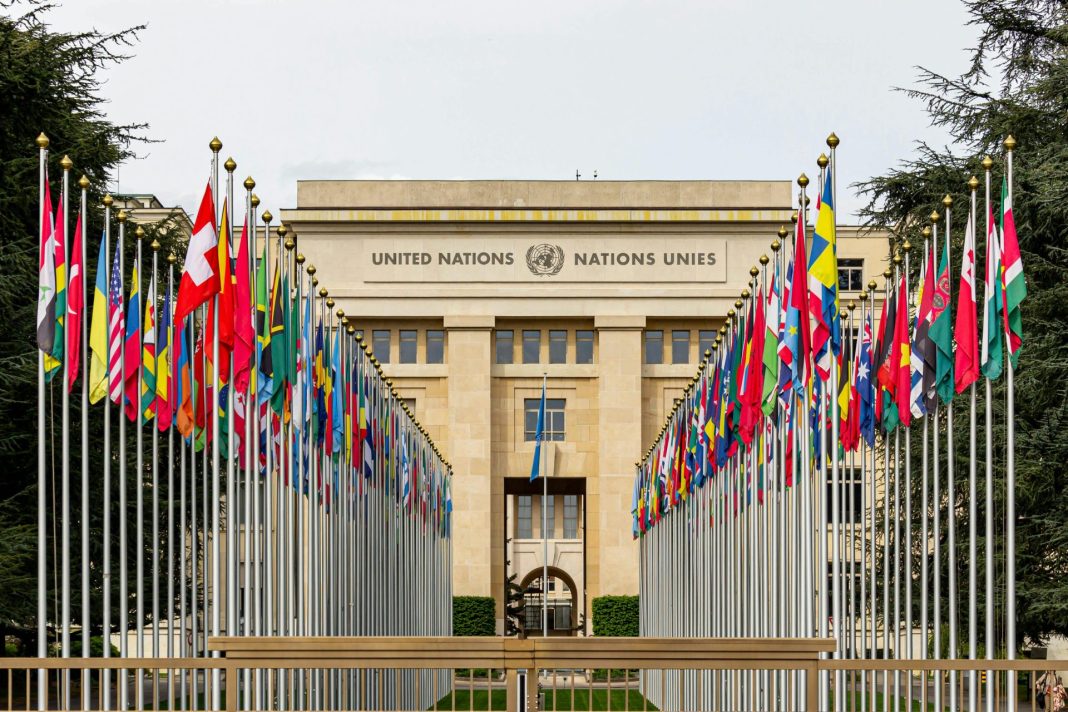The University of Oxford and the Office of the United Nations High Commissioner for Human Rights (OHCHR) have announced the official programme and list of participating institutions for the Right Here, Right Now Global Climate Summit.
The Summit will take place from 2nd to 8th June with the intention of uniting voices across continents to advance human rights-based climate solutions. This year it will be held virtually, anchored at Oxford but connected to universities across the world. This decentralised model has reduced the environmental cost involved in traditional summits which convene world experts in a single location. The Summit will be available to watch on a YouTube livestream.
Alongside the University of Oxford and UN Human Rights, the 2025 programme includes many international institutions. It will be convened by the International Universities Climate Alliance who are taking a leading role as Summit co-hosts.
Professor Irene Tracey, Vice-Chancellor and speaker at the Summit, said that this meeting will “bring together leaders in human rights and climate research from around the world, across a wide range of disciplines with the common goal of finding solutions to one of the most pressing issues of our times, climate change.”
Set to participate in the livestream are the University of Cape Town, University of Colorado Boulder, Himalayan University Consortium, KTH Royal Institute of Technology, Monash University, University of Nairobi, Universidade de São Paulo, the University of the South Pacific, UNSW Sydney, and the University of the West Indies.
The plenary will begin at the Sheldonian Theatre with an introduction from the Vice-Chancellor, Irene Tracey, and the United Nations High Commissioner for Human Rights, Volker Türk.
The University of the South Pacific will speak first, focusing on youth perspectives on climate justice and discussions on climate change in the Pacific. Their programme will feature Cynthia Houniuhi, President of Pacific Islands Students Fighting Climate Change; Dr. Eselealofa Apinelu, Tuvaluan High Commissioner to Fiji; and Lenora Qereqeretabua, Deputy Speaker of the Parliament of Fiji.
Monash University will then present an interactive programme exploring Indigenous perspectives, the human right to health, and the unifying power of music across cultures in Asia and the Pacific. UNSW Sydney will host discussions on the human rights impacts of Australia’s fossil fuel exports. They aim to transform a partnership to resilience building through a dialogue on Indigenous Peoples and university engagement. The UN Human Rights and the International Universities Climate Alliance will follow this with a conversation on advancing gender equality in climate action.
Next up, the Himalayan University Consortium is set to host a four-way conversation on human rights-based climate action between a community member, a scientist, a policymaker, and an Indigenous knowledge holder from countries in the Hindu Kush Himalayas.
Moving across time zones, the University of Nairobi will centre their discussions on human rights-based climate finance and human-rights based climate adaptation and resilience in Africa. The University of Cape Town will then provide insights into the relationship between climate change and human rights in Africa and the ways that teaching and research can advance human-rights based climate action. The International Universities Climate Alliance and UN Human Rights will facilitate a discussion on human rights and climate finance.
After that, the KTH Royal Institute of Technology will host a dialogue on how we can reframe the Sustainable Development Goals for a post-2030 world centred in human rights and planetary health.
The online Summit will then return to Oxford, where talks will assess the transformative power of international human rights law in climate action, the role of war in fuelling the climate crisis and vice versa, and business and human rights in the green transition. The final conversation facilitated by UN Human Rights and the International Universities Climate Alliance will then take place, focusing on integrating human rights in Nationally Determined Contributions (NDCs).
To follow, the conversation will move to the Atlantic to the University of Colorado Boulder. This will include a keynote from global advocate for Indigenous rights and health Siila (Sheila) Watt-Cloutier, before the University of the West Indies hosts a session on Caribbean youth perspectives on climate justice.
The Universidade de São Paulo will close the event with sessions on addressing deforestation and its contribution to the climate crisis as well as the rights of Indigenous Peoples and the rights of future generations in the context of climate change. This will include messages from government ministers and the President of COP30, Ambassador André Correia do Lago.
Finally, a closing session led by UN Human Rights will bring together key voices from across the world to share reflections on the global plenary, focusing on human rights-based climate action that can be taken right here, right now.
The cornerstone of the multi-day summit, the 24-hour global plenary will take place on 5 June 2025 for World Environment Day. The University of Oxford are hosting pre-summit events which can be viewed on their website.
The global plenary will be streamed live on YouTube, beginning at 8pm BST on 4th June and continuing to 10.30pm BST on 5th June. Full details of the online global programme are available on the Summit hub.


